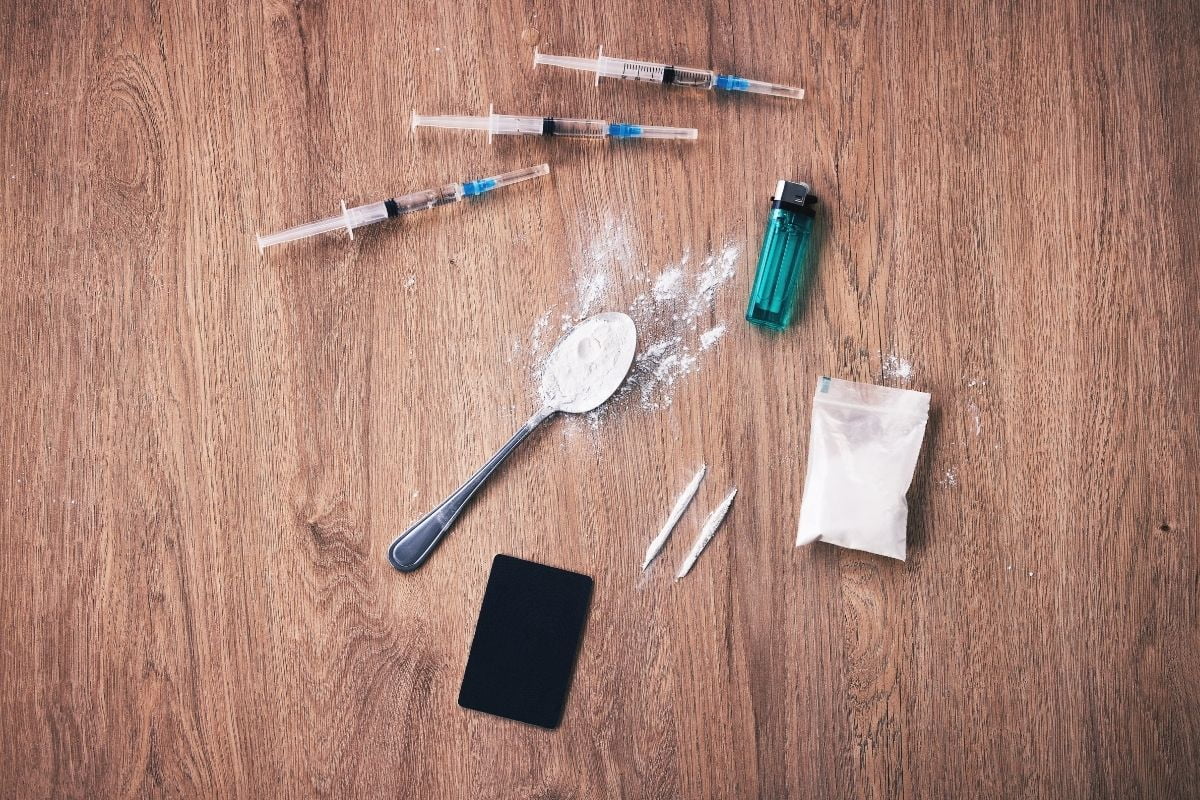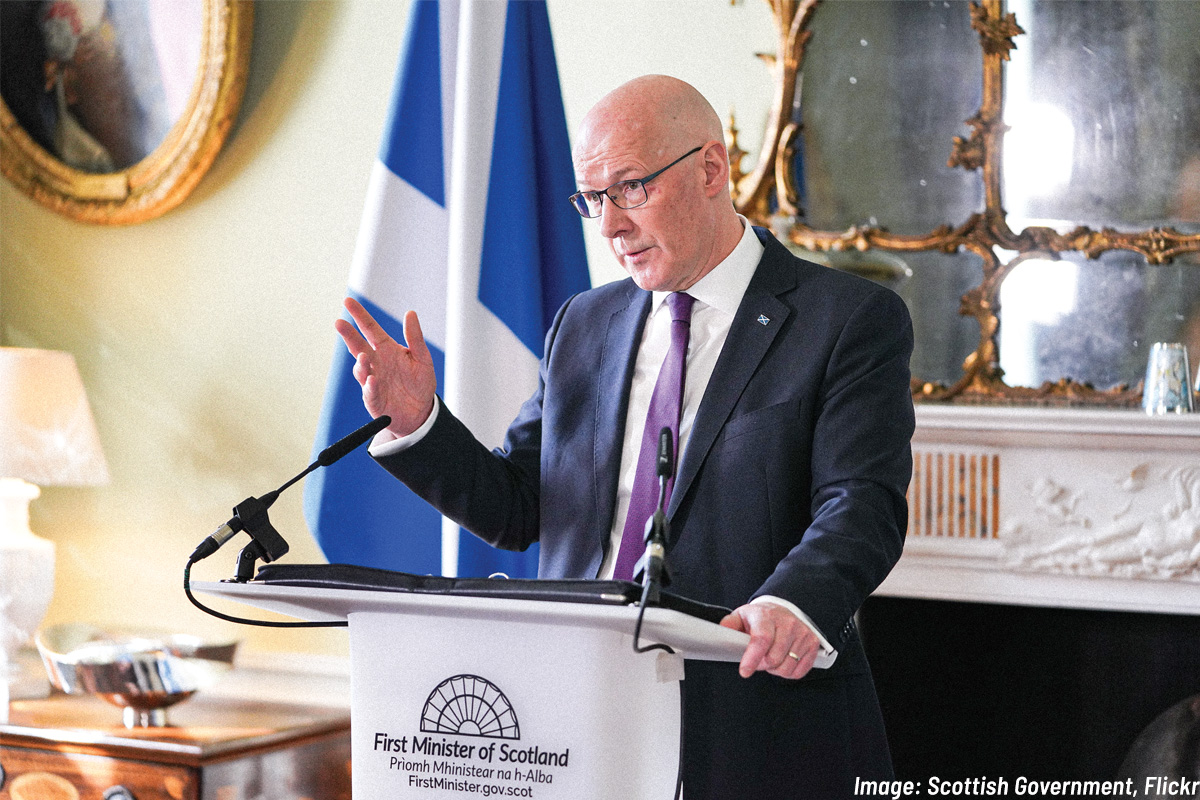The UK’s first facility for the supervised consumption of illegal drugs is set to open in Glasgow next year. The scheme, in which addicts are permitted to use illegal drugs such as heroin or other opiates in a clinical setting, was approved in late September following agreement between local health bodies and Scottish law enforcement.
Britain is on the tail end of a sharp rise in deaths from illicit drug consumption. Deaths from drug poisoning increased by over 80% during the decade from 2012 to 2022.
Figures have fallen slightly this year, after peaking during the coronavirus pandemic. But they are still at a record high.
And the problem is particularly acute in Scotland, where rates of drug-related mortality are three times the UK average.
Safe room
The Scottish government has been under pressure from campaigners to deal with this public health emergency. Last year, Nicola Sturgeon vowed that it was her “national mission” to reduce drug deaths. The SNP has therefore cautiously approved the supervised consumption proposal.

One campaigner, Peter Krykant (himself a recovering addict), gained notoriety in 2021 for running an unofficial ‘overdose clinic’ out of an old van, and later from a refurbished ambulance.
Before being arrested in October 2021, on charges that were subsequently dropped, Krykant claimed to have supervised over 900 opioid injections, saving nine people from potentially fatal overdoses in the process.
The idea of a ‘safe consumption room’ had been floated since at least 2015. Its recent approval follows the expanded issuance of naloxone – a life-saving anti-overdose medicine – to Scottish police and paramedics.
The new facility in Glasgow will be based out of the current homeless services centre on Hunter Street, near to the Barras Market. Already, drug addicts receive treatments there, such as methadone replacement programmes.
Proponents expect the roughly 500 people who regularly inject drugs in Glasgow’s public spaces – as counted in a 2016 study into an AIDS outbreak – to use the new facility as an alternative. The hope is that this will reduce the danger posed to the public by discarded needles and paraphernalia.
Opioid epidemic
Similar ‘safe consumption’ spaces have been operating throughout Europe since the 1980s, due to the AIDS crisis. The aim is to reduce the spread of disease amongst addicts, and to prevent deaths from overdoses and dependency. Now, however, the focus is strictly on reducing deaths from opioid abuse.
Opioid overdoses were responsible for up to 82% of drug deaths last year. And drug policy campaigners warn that the situation will only get worse, as synthetic opioids replace heroin on the global drugs market.
This is in large part due to the return of the Taliban to power in Afghanistan. Having previously relied on the opium trade to fund their war against US occupation, Taliban leaders have now come out against the cultivation of the poppy in their country.
Synthetic opioids include morphine, codeine, and also the extremely-toxic fentanyl, which is responsible for hundreds of thousands of deaths every year. Each week in the USA, 1500 people die from taking an opioid, while millions of people struggle with addiction – often to drugs initially pushed on them by their own doctors.
Services overstretched
The charity Scottish Drugs Forum has warned that the overall Scottish government response to the crisis is “inadequate”.
In isolation, safe consumption rooms will not have the desired result of reducing drug addiction and death. What is required is a network of accessible health and social services. But these are being systematically dismantled by austerity policies.
Due to budget cuts, for example, the ability of addicts to find recovery and treatment has become more difficult than ever.

Addiction rehabilitation experts at Rehab UK note that despite a rise in addiction and drugs-related deaths, NHS hospital admissions have actually fallen by 17.5% in recent years, with overstretched public services unable to meet demand.
Private profiteers
In turn, as more people are put on extensive waiting lists, increasing numbers are being forced to turn to the private sector for rehabilitation.
Private residential facilities are out of reach for most addicts, however, costing around £2,000 per week. And a four-week stay is considered the minimum to have any chance of breaking the habit.
For years, campaigners have pleaded for more NHS funded places in residential rehab, as well as recovery centres and overdose prevention strategies. But these appeals have been consistently ignored by politicians when it comes to deciding health budget priorities.
Consequently, Rehab UK reports that death from drug use is 16 times higher in deprived communities, where addicts have fewer options for help. By contrast, investors see good money to be made from providing private services to middle-class folk with a cocaine or painkiller habit.
Tories and criminalisation
Most often, the only attention that addicts can expect is that of the police, who treat them as dangerous criminals, rather than vulnerable people in need of medical treatment.
Supervised consumption clinics create a legal grey area, however, where the possession and consumption of drugs is effectively legalised.
This is opposed, naturally, by the Tories, who are keen to appear ‘tough on crime’. As such, Home Secretary Suella Braverman has criticised the SNP as having the ‘wrong approach’ in approving the new supervised consumption policy.

For similar reasons, in an effort to whip up a distracting public panic, the government has pushed through legislation to criminalise the use of nitrous oxide (‘laughing gas’), which will come into effect on 8 November.
As usual, the ‘criminals’ the Tories focus on are the most downtrodden in society, rather than the capitalist gangsters in the City of London whose system keep millions in poverty.
Revolutionary solution
The SNP, by contrast, has defended this latest plan as one that will save lives.
But behind their mask of liberal compassion, the deep deprivation that exists in many parts of Scotland, and the tight budgets facing homeless and drug addiction services, tell a different story.
As communists, we are firmly against the criminalisation of addiction and the demonisation of users. The epidemic of overdoses and misuse should be treated as a social issue, as a public health problem, not as a question of ‘law and order’.
On the other hand, however, the liberal advocates of legalisation offer no real solution either.
Drug addicts are often on the bottom rung of society – homeless, unemployed, poorly educated, without family connections, etc.; lower even than the working class, most having fallen from it.
For the majority, these social factors precede the downward spiral of addiction: loss of secure housing, a job, and family ties.
This is therefore a problem that cannot be fully solved under capitalism – a system that breeds unemployment, homelessness, alienation, and austerity.
Drug addiction is a scourge of capitalist society; a blight that, alongside poverty and exploitation, should be swept into the dustbin of history by the revolutionary working class.






